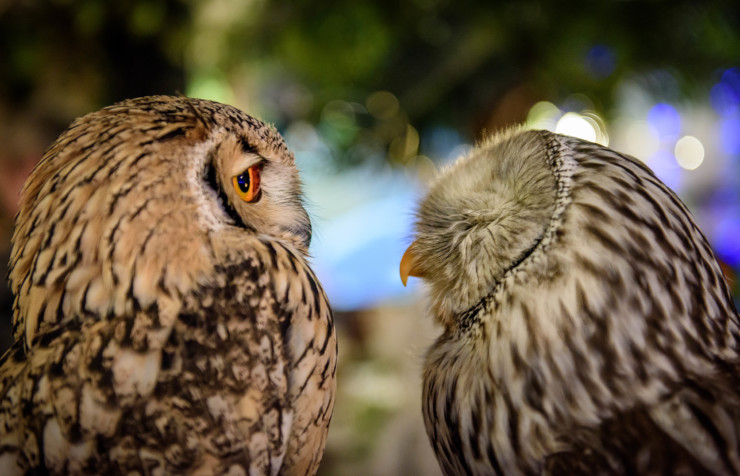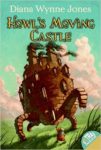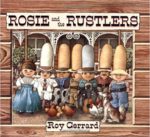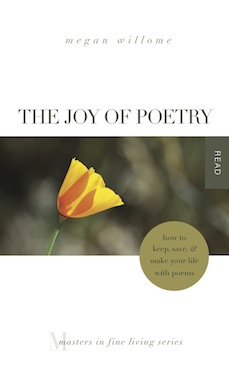At Tweetspeak, books matter. We host a book club, we review books, and we publish them at TS Poetry Press. We’re dedicated to literacy — for life. And we want to learn from each other about reading in the wild.
Do you want to be a wild reader? Are you reading wildly already? We’re using Donalyn Miller’s Reading in the Wild: The Book Whisperer’s Keys to Cultivating Lifelong Reading Habits to explore what it means to be a wild reader — someone most likely to embrace literacy for life. Read through these 5 characteristics and see which ones fit your reading style and which you might incorporate this month.
5 Main Characteristics of Wild Readers
1. They dedicate time to read.
There is something to be said for taking time to read, as in deliberately reading slowly. That is what I am doing as I sink into The Aeneid. (Yes, the one by Virgil.) For Christmas, my daughter gave me a new translation by David Ferry, whom she heard speak. He had the brilliant idea to render the epic poem in iambic pentameter, the form favored by Shakespeare. Which means it sounds the way a poem should.
I’m reading it slowly, a little bit every morning at breakfast, with Wikipedia nearby to look up all the names from Roman mythology. I’m absolutely loving it. For three Sundays, now, I have plunged in, reading it aloud, just to savor sentences like this one: “Now it was night and all across the earth / All living beings were harvesting their sleep.”
2. They self-select reading material.
After listening to an episode about The Crossing by Cormac McCarthy on Overdue, I decided to only read the first section, which functions as a novella. I’ve read McCarthy before — I know what I like and what don’t. This is what I like:
Of Pap: “His eyes were very blue and very beautiful half hid away in the leathery seams of his face. As if there were something there that the hardness of the country had not been able to touch.”
Of the border mountains: “Before him the mountains were blinding white in the sun. They looked newborn out of the hand of some improvident god who’d perhaps not even puzzled out a use for them.”
Of Billy: (note: McCarthy does not use quotation marks to render dialogue)
Have you always been crazy?
I dont know. I never was much put to the test before today.
3. They share books and reading with other readers.
A friend from poetry group recommended a picture book titled Rosie and the Rustlers by Roy Gerrard. It begins, “Where the mountains meet the prairie, where the men are wild and hairy, / There’s a little ranch where Rosie Jones is boss,” and it ends, “Where the mountains meet the prairie, where the men are wild and hairy, / There’s a little ranch where Rosie reigns supreme.” In between there’s some cattle rustling, but in this story “their dear friends the Cherokee” help Rosie and her cowpunchers save the day, the cattle, and even the lives of Greasy Ben and his “ruffianly men.” There’s also salad for dinner, dancing in the street, and some great illustrations of the Mountain West.
4. They have reading plans.
I’ve had a simple plan: to read more books by Diana Wynne Jones. After I read one in November and one in December, I finally checked out her best-known work, Howl’s Moving Castle. It’s unlike any fairy tale I’ve ever read. In fact, I’m not even sure if that’s what I should call it, as opposed to just fantasy. The story stands out because of its two main characters, Sophie and Howl. Each are unlike the female and male stereotypes so often found in stories — especially in fairy tales — yet I know people like Sophie and people like Howl (setting aside magic). The plot gets mighty bizarre in spots, but it all makes perfect sense in the end. I loved when they travel to modern Wales and describe it as if it’s a crazy alternate dimension.
5. They show preferences.
Right before New Year’s I went shopping with two cousins at a store I thought had nothing for me, when I stumbled upon Poems, a collection by C.S. Lewis. I’m so glad I discovered this book the same month I started The Aeneid because many of the poems riff on mythology. Which makes sense because he was a professor of English literature at Oxford University and later, at Cambridge, of Medieval and Renaissance literature.
And here’s the synergy for the month: Diana Wynne Jones was a student of Lewis’s. Here’s what she had to say about him and another fellow you may have heard of, J.R.R. Tolkien, in Reflections on the Magic of Writing:
“When I was a student at Oxford, both C.S. Lewis and J.R.R. Tolkien were lecturing there, Lewis magnificently and Tolkien badly and inaudibly…”
“However, C.S. Lewis and J.R.R. Tolkien were both lecturing then; Lewis booming to crowded halls and Tolkien mumbling to me and three others.”
“Oxford was very scornful of fantasy then. Everyone raised eyebrows at Lewis and Tolkien and said hastily, ‘But they’re excellent scholars as well.’”
(I’ll be quoting more from Jones in the Through the Looking Glass workshop, which starts this Monday, February 5.)
January’s Pages
Finished
Adult
Trigger Warning, Neil Gaiman
Early Readers and Picture Books
Cloudy with a Chance of Meatballs, Judi Barrett, illus. Ron Barrett
Rosie and the Rustlers, Roy Gerrard
Sparrow Girl, Sara Pennypacker, illus. Yoko Tanaka
Middle Grade and YA
Tiger Lily, Jodi Lynn Anderson
Howl’s Moving Castle, Diana Wynne Jones
Sliced (1/4 to 1/2 Only: Got What I Needed and Moved on or Plan to Finish Someday)
The Crossing, Cormac McCarthy
Craeft: An Inquiry Into the Origins and True Meaning of Traditional Crafts, Alexander Langlands
Abandoned (Not My Cup of Tea, It Bogged Down Quickly, or Others Beckoned)
The Art of Loading Brush: New Agrarian Writings, Wendell Berry
Started (Will I Finish? You betcha!)
Poems, C.S. Lewis
The Aeneid, Virgil, translated David Ferry
Your turn
1. Share anything about you and the 5 main wild reader characteristics. How do you display them, or wish you did, or plan to in the future?
2. Share your January pages. Finished, sliced, started, and abandoned are all fair game.
Photo by 白士 李, Creative Commons, via Flickr. Post by Megan Willome, author of The Joy of Poetry.
__________
“Megan Willome’s The Joy of Poetry is not a long book, but it took me longer to read than I expected, because I kept stopping to savor poems and passages, to make note of books mentioned, and to compare Willome’s journey into poetry to my own. The book is many things. An unpretentious, funny, and poignant memoir. A defense of poetry, a response to literature that has touched her life, and a manual on how to write poetry. It’s also the story of a daughter who loses her mother to cancer. The author links these things into a narrative much like that of a novel. I loved this book. As soon as I finished, I began reading it again.”
—David Lee Garrison, author of Playing Bach in the D. C. Metro
- Perspective: The Two, The Only: Calvin and Hobbes - December 16, 2022
- Children’s Book Club: A Very Haunted Christmas - December 9, 2022
- By Heart: ‘The night is darkening round me’ by Emily Brontë - December 2, 2022





Sandra Heska King says
I’ve started reading in bed again. I was finding reading lights to be a nuisance, but the bedside light doesn’t seem to bother my husband.
I finished Dancing King. There were snatches of other books… including a couple I picked up in Gumbo Limbo Nature Center’s (a place nearby where they treat and rehabilitate sea turtles) gift shop–Florida’s Fabulous Waterbirds: Their Stories and Florida’s Fabulous Birds–Land Birds: Their Stories.
I’ve started Billy Coffey’s Steal Away Home and also started Madeleine L’Engle’s A Circle of Quiet. Eric Weiner’s The Geography of Bliss is in this month’s stack as is Wrinkle in Time and Bruce Handy’s Wild Things, which I started a couple months ago and got sidetracked. I figure that one will see some serious action soon. 😉
I love having this “accountability” and inspiration. Time was I could make my way through almost as many books as Glynn does. Well, maybe not that many.
Megan Willome says
“A Circle of Quiet” is a favorite, as is, also “A Wrinkle in Time.” I think L’Engle gets more relevant with time.
I hope some poems fly out from the book about Florida’s water birds.
Kortney Garrison says
I’ve got Circle of Quiet and Wrinkle in Time coming up to re-read again! Good company!
Glynn says
Sandra – excellent choice of reading!
My reading for January:
Poetry
Injury Time: Poems by Clive James
One Million Tiny Cuts: Poems by Martin Duggan
Grief is the Thing with Feathers by Max Porter (this might also be a novel)
Night Sky with Exit Wounds: Poems by Ocean Vuong
Three poetry chapbooks: Jesuits by Ryan Teitman, A Map of Veins by Regina DiPerna, and Philomela by Paisley Rekdal
Faith
Charles Dickens: Faith, Angels and the Poor by Keith Hooper
Bruised & Wounded by Roland Rolheiser
Tyndale by David Teems
Finding Purpose by Cindee Snider Re
Can I Have Joy in My Life? by R.C. Sproul
The Oxford Inklings by Colin Duriez
From Depths We Rise by Sarah Rodriguez
Fiction
Mosquitoes by Lucy Kirkwood (play)
The Silent Boy by Andrew Taylor
Hand Me Down the Dawn by Mary Harwell Sayler
A Boy Made of Blocks by Keith Stuart
Clear Winter Nights by Trevin Wax
Mystery
The 12:30 from Croydon by Freeman Wills Crofts
Glass Houses by Louise Penny
Corpses at Enderby by George Bellairs
The White Cottage Mystery by Margery Allingham
A Possibility of Violence by D.A. Mishani
Front Page Murder by Peter Bartram
The Gardens of the Dead by William Brodrick
Sandra Heska King says
LOL.
I’ve had Tyndale on my shelf for a long time. I need to move it towards the front. I love David Teems. I think Megan might like his “And Thereby Hangs a Tale: What I Really Know About the Devoted Life I Learned from My Dogs.”
https://www.amazon.com/Thereby-Hangs-Tale-Devoted-Learned/dp/0736927166/ref=sr_1_4?ie=UTF8&qid=1517582587&sr=8-4&keywords=and+thereby+hangs+a+tale
Glynn says
The Tyndale book is really good.What I didn’t know what how much he influenced both Shakespeare and the KJV Bible.
Megan Willome says
Both of those books by Teems look good. I might be more in the mood for the one on Tyndale.
And Glynn, I’m following Sandy’s lead and rereading “Dancing Priest” and “A Light Shining” before I read your newest, “Dancing King.” I went to bed dreaming of the Athens Olympics.
Oh, and I think you would love David Ferry’s translation of “The Aeneid.” Since I’m sure you’ve read it before, in another translation, you’d bring a lot to the understanding of this ancient but still relevant story.
Glynn says
Megan, I haven’t read the Aeneid since college, my freshman year, in fact. I don’t remember which translation. I do remember which translation of Homer’s The Iliad and The Odyssey — Richard Latimore’s.
Megan Willome says
This is from Ferry’s intro, “On the Translation”:
“I am in love with [Virgil’s] voice as I hear it in all these poems, telling how it is with all created beings, the very leaves on the trees, the very rooted plants, the beasts in the fields, the shepherds trying to keep their world together with song replying to song replying to song, the bees in their vulnerable hives, doing their work, the soldiers doing their work of killing and dying, the falling cities, and the kings and fathers, and their sons, and Dido, and Palinurus, and Deiphobus, and Mezentius the disrespecter of gods, and the mortal son of Venus, the creature Aeneus, carrying his household gods to build a city, heroic and vulnerable, himself subject to monstrous rage, himself not always unconfused.”
He had me at “unconfused.”
L.L. Barkat says
When I peeked at this post earlier this week, I was inspired to put The Aeneid on hold. And Tiger Lily and Craeft and The Art of Loading Brush. I can’t wait to pick them up and enjoy during February.
For January, I’ve kept on with Gaiman’s A View from the Cheap Seats. He makes me laugh. And I love his writing journey and quirks and all the fun looks into other authors’ lives and some illustrators. The essays on Stephen King and David McKean (sp?) were especially encouraging at this juncture in my own journey as a publisher.
I started The Chamber of Secrets, on listening CD. She really is a good writer. More noticeable by audio, I think.
I’m also (slowly) reading Hannah Arendt’s Eichmann in Jerusalem and discussing it with Sara (who is reading it for Junior Seminar). Now that is some thought-provoking book! And I’m pondering, deeply, the idea that evil is not so much the opposite of good but rather a “lack of thought.” Also, many fascinating historical tidbits that make me realize some of the less obvious ironies of what happened during those tumultuous times.
Megan Willome says
I actually did not care for “Tiger Lily” because I felt like it didn’t do enough retelling of the story from her point of view. The author spent a lot of time setting up Tiger Lily and her tribe, which I enjoyed, but then it took forever to get to Wendy and Captain Hook. I’ll be interested to hear what you think.
Glad you’re reading another of Gaiman’s. I could have written this entire post about how much I enjoyed “Trigger Warning,” especially the unexpected happy stories. (Although I do love a good creepy tale.)
I agree that the audio version brings something to J.K. Rowling’s text. I miss things when reading an HP chapter that I catch when I’m listening.
Maureen says
Still reading Gaiman. I pick him up for lighter reading moments.
I’ve nearly finished Richard Ford’s ‘Between Them’. Lovely.
Poetry reading includes the three chapbooks ‘The Whetting Stone’ by Taylor Mali (beautifully written and very sad), ‘In America’ by Diana Goetsch, and the excellent ‘Elephants’ by Nicelle Davis (art by Cheryl Gross). Also have finished Danez Smith’s ‘Don’t Call Us Dead’, a section of which contains heart-rending poems on AIDS; the entire collection is fierce and extraordinary. Be sure to pick up a copy of ‘Bullets Into Bells’, which contains wonderful calls-and-responses t gun violence. I wrote a brief review (on Amazon) of ‘Ancients of the Earth’ by my friend D.A. Hickman; Daisy covers the subject of time exhaustively but never boringly. I’ve still to read a shelf of new books, including Megan Levad’s collection ‘What Have I To Say to You’ and a couple of artbooks.
I’m also reading Miriam Huffman Rockness’s new spiritually inspiring book ‘Images of Faith: Reflections Inspired by Lilias Trotter’ (Vol.1), edited by a friend of mine. I’ve read most all of her books. Trotter, if you don’t know about her, was an amazing woman who spent 40 years in Algeria; her paintings are exquisite. Rockness wrote an excellent biography of Trotter, who studied with John Ruskin; and was involved in production of a documentary about her (highly recommended).
(I don’t know when I’ll be caught up on my reading; my fall move took a long time, though I’m now settled in; and family matters have kept me on planes. I’m back writing poetry, though not putting it online. I’m trying to get in the mode of sending stuff out.)
Megan Willome says
Maureen, you read so much good poetry, and that births writing good poetry. Sometimes new poems need to be held close for a while. They’ll let you know when they’re ready to be seen.
Kortney Garrison says
A poet friend just recommended Howl’s Moving Castle this week, so I picked it up from the library. Now with your recommendation, Megan, it’s moving to the top of the stack. So curious to read this fairy tale. Thanks for sharing your wild reading here.
Megan Willome says
Kortney, I’ll be curious to hear your thoughts. Please come back here when you’re done, or tag me on Facebook. I love to discuss books, and this one is worthy of much discussion.
Kortney Garrison says
Just finished Howl…was fairly charmed by him in the end! Loved how free and brave Sophie became after she was old. A lesson and inspiration for me! Happy reading!
Megan Willome says
So glad you came back to update us, Kortney. Yes, I think Sophie finds a freedom and bravery in herself as an old woman that she didn’t recognize in herself when she was young. It was always there, of course.
L.L. Barkat says
One of my favorite things about this was that she had the power all along to be changed back, but she was not conscious of it—and, I think, she was enjoying the freedom of age too much. Something to think on, yes. We often hold the key to change, or “not change.” (Which reminds me a little of Callie’s post here today about the Excuse Me game. 🙂